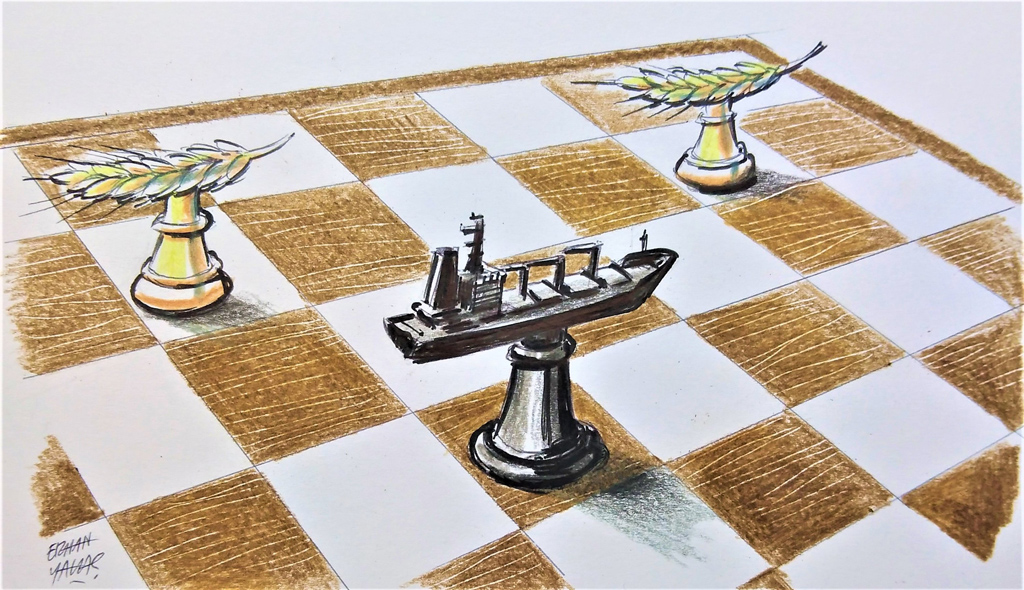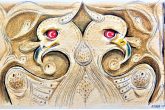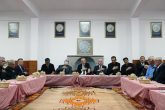The Sochi summit continues to make waves as the Western media, which praises Türkiye for its role in the grain deal, remains unhappy with the perceived rapprochement between Ankara and Moscow.
The Financial Times has already brought up the threat of “secondary sanctions,” warning that President Recep Tayyip Erdoğan was taking a risk. Other European outlets, too, talk about the Turkish leader’s diplomatic engagement with both warring parties, Ukraine and Russia, with mixed emotions. Still, they do not refrain from accusing Türkiye of opportunism for supposedly harnessing its geopolitical significance to fill the void that the European Union’s sanctions created.
Obviously, the vast majority of such assessments actually qualify as propaganda. The rest, in turn, suffers from an inability to accurately analyze Türkiye’s policy toward Russia.
First and foremost, it is important for the whole world, including the Western alliance and Türkiye itself, that the Turkish government remains in a position to engage with Russia and Ukraine simultaneously. Whereas some European leaders failed to negotiate terms with Russian President Vladimir Putin in the wake of the Ukraine war, Erdoğan brought together the Russian and Ukrainian foreign ministers as well as facilitated the delivery of Ukraine’s grain to the world.
The ability to speak with both parties not only adds to Türkiye’s burden but also creates certain opportunities. It is hardly surprising that the country, whose logistical value came to be appreciated, thanks to the coronavirus pandemic, has been attracting investment and commercial interest from Europe, the Gulf and Russia.
Even the grain deal clearly showed that walking down the strategic path entails certain responsibilities as well. As one of the Black Sea region’s most important nations and the controller of the Straits, Türkiye wants a cease-fire and peace instead of more fighting. For that purpose, it follows an idiosyncratic policy of active neutrality.
Having delivered armed drones to Ukraine amid Moscow’s criticism, Türkiye has not joined the U.S. and EU sanctions – like many countries around the world. Yet the economic and commercial ties between Türkiye and Russia, which grew stronger at the Sochi summit, are not intended to undermine Western sanctions. Ankara certainly maintains a delicate balance on that front.
Six months into the Ukraine war, Türkiye remains one of the most negatively affected countries in the region. The rise in energy prices alone added to the country’s financial burden. This, along with the humanitarian considerations, accounts for Ankara’s push to stop the war as soon as possible and its diplomatic efforts.
For the record, accusing Türkiye of “using its geopolitical significance” is quite laughable. Are we supposed to believe that “geography is destiny” when the country is exposed to various crises due to its geopolitical position, yet managing those crises to become more influential somehow qualifies as opportunism?
It is a fact that Türkiye cannot escape the negative impact of various crises due to its geopolitical position. To make matters worse, its allies have consistently failed to support Türkiye in the face of such developments. The civil wars in Iraq and Syria attest to that fact.
When Russia established itself in Syria, did any of Türkiye’s Western allies support Ankara? The Turkish people still remember how some Western governments hastily withdrew their Patriot air defense systems at the time.
The situation is even worse regarding counterterrorism and refugees. Compared to the burden on Türkiye’s shoulders, Europe’s support for Syrian asylum-seekers amounted to next to nothing. Erdoğan did his best to mobilize all relevant institutions, including the United Nations General Assembly, to support the Syrian people. Yet the outcome is unmistakable: Shall we call it the opportunistic and shameless universe of narrowly-defined interests?
It would not serve Europe’s interests to problematize Türkiye’s relationship with Russia during the Ukraine war. All parties must remember that Erdoğan is the only NATO leader who could play a constructive role in peace efforts. An increasing number of analysts suggest that the economic sanctions did not yield desired results, warning that the European economy has suffered as a result. Indeed, the threat of energy sanctions puts more pressure on Europe than Russia. Moscow still gets to find buyers to purchase energy at a reduced price.
The leaders who created a deadlock in Türkiye-EU relations over Greece’s extreme demands need to ponder over it. It would make a lot more sense for the U.S. and the EU to strengthen their relations with Türkiye (without factoring in next year’s elections) instead of discussing the risk of additional sanctions.



